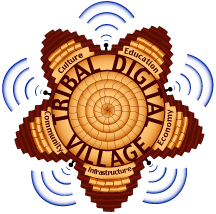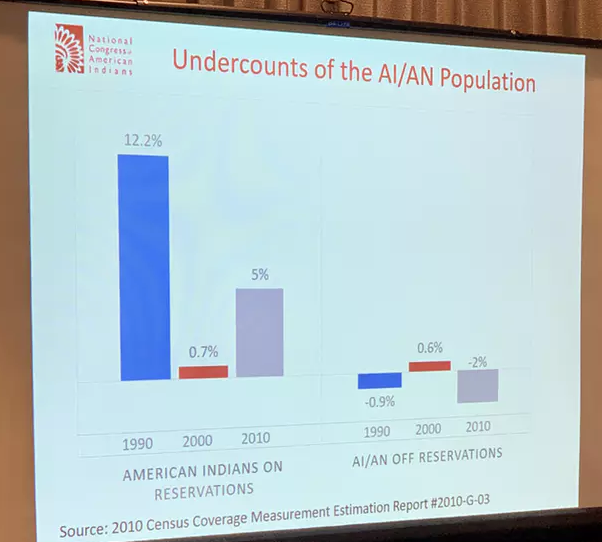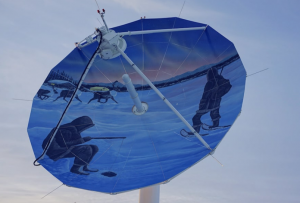‘Inuvik is a community the world can learn from’: Rural internet hot topic at summit
People from across North America come to Inuvik to talk internet access in remote areas.
Mackenzie Scott · CBC News | Last Updated: October 12
Matthew Rantanen spoke at the summit about the challenges and opportunities in bringing broadband internet to remote areas. (Mackenzie Scott/CBC)
Hailing from southern California and known as a “cyber warrior for tribal broadband,” Rantanen visited the community this week.
He was in the Beaufort Delta for the Indigenous Connectivity Summit, an event that brought together 150 people from across North America to Inuvik, N.W.T., which is becoming an internet hub in its own right.
About 150 people from across North America descended on Inuvik this week for the Indigenous Connectivity Summit. (Mackenzie Scott/CBC)
Mackenzie Valley Fibre Link brings opportunities, challenges to N.W.T.
“[Tuktoyaktuk has] a couple of radio towers that could be used to … distribute internet,” said Rantanen. “If they get fibre to Tuk, there is a really easy solution to serve all the buildings in Tuk.”
In a presentation at the summit, Rantanen talked about how southern California’s mountains have affected access to high-speed internet in that region.
“Geography is a real barrier to enter for a lot of broadband,” he said, explaining how his organization has figured out a way to use those barriers to its advantage — serving communities from the mountain tops.
“We have a great visual opportunity. We can see all of the valleys. So we broadcast internet from the mountain top down into the valleys.”
Inuvik satellite dish installations remain unused, still waiting for final federal approval
Rantanen’s presentation was an inspiration to Duane Smith, chair of the Inuvialuit Regional Corporation (IRC), because the IRC has explored similar ideas for the Beaufort Delta’s mountainous region.
“Our communications [team] can talk to him and learn the glitches that they had to go through to get to the stage where they are at, because they have implemented their internet network,” he said.
The connectivity summit is in its second year. Last year, it was held in Santa Fe, N.M. It’s hosted by the Internet Society, a global not-for-profit that aims to promote the development, the connection to — and use of — the internet.
Mark Buell, regional bureau director for North America for the Internet Society, said his organization is putting more of a focus on connecting rural and remote communities.
Mark Buell is the Internet Society’s regional bureau director for North America. He says he hopes people were inspired by what they learned at the conference. (Mackenzie Scott/CBC)
“Inuvik is a community the world can learn from,” he said, pointing to the Mackenzie Valley Fibre Optic Line, the community’s two satellite stations and a planned fibre optic loop that will connect Dawson City, Yukon, to Inuvik. The result of this, said Buell, is that Inuvik is becoming on of the most connected Arctic communities in the world.
Mackenzie Valley Highway project to get $102M boost from federal gov’t
Closing the internet loop: 800-km fibre optic line to connect Inuvik and Dawson City
“I really hope … people will be inspired by what they learn here,” he said. “I hope when we leave Inuvik, that the conversations will carry on among the people here.”





Comments are closed here.